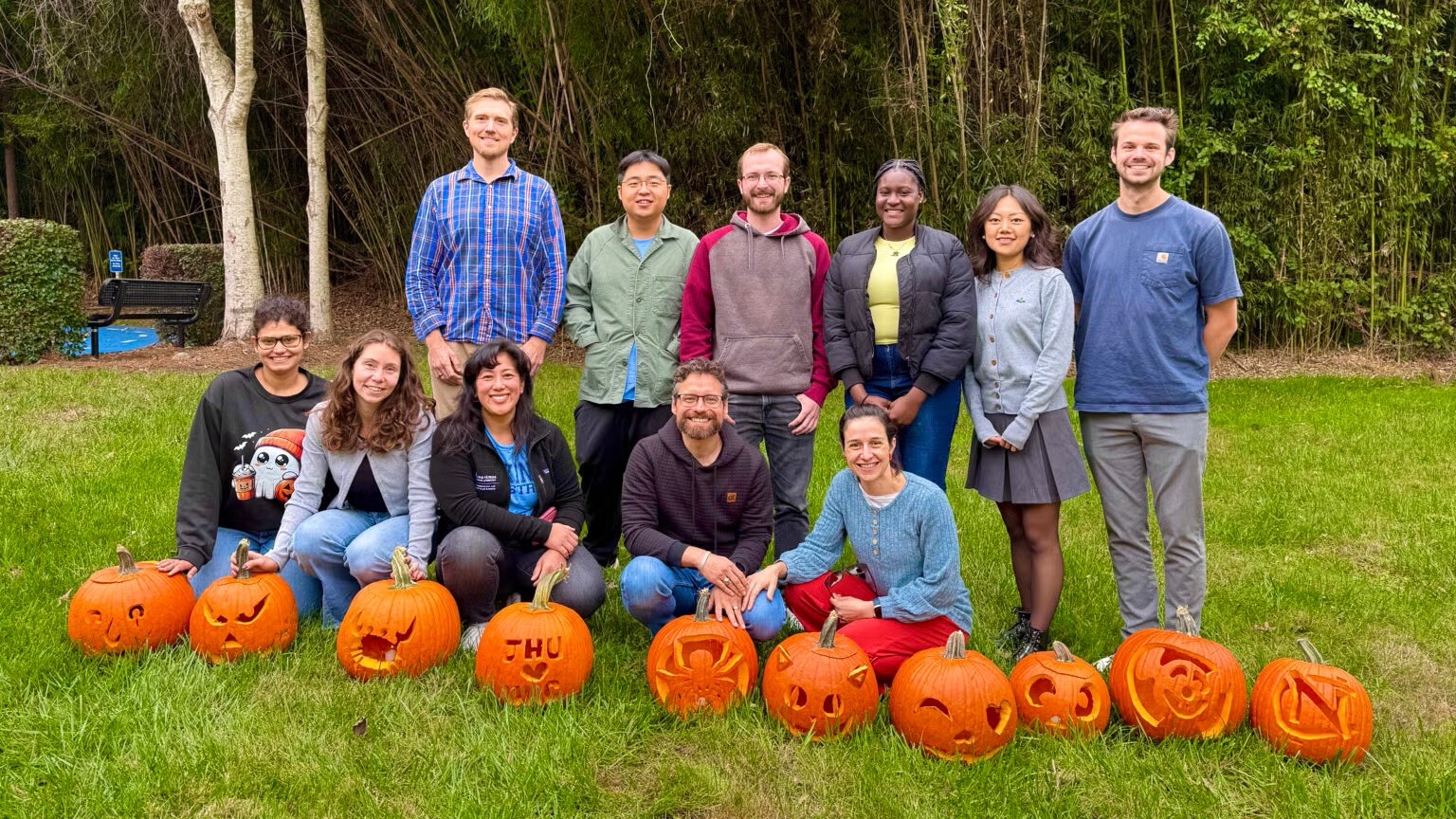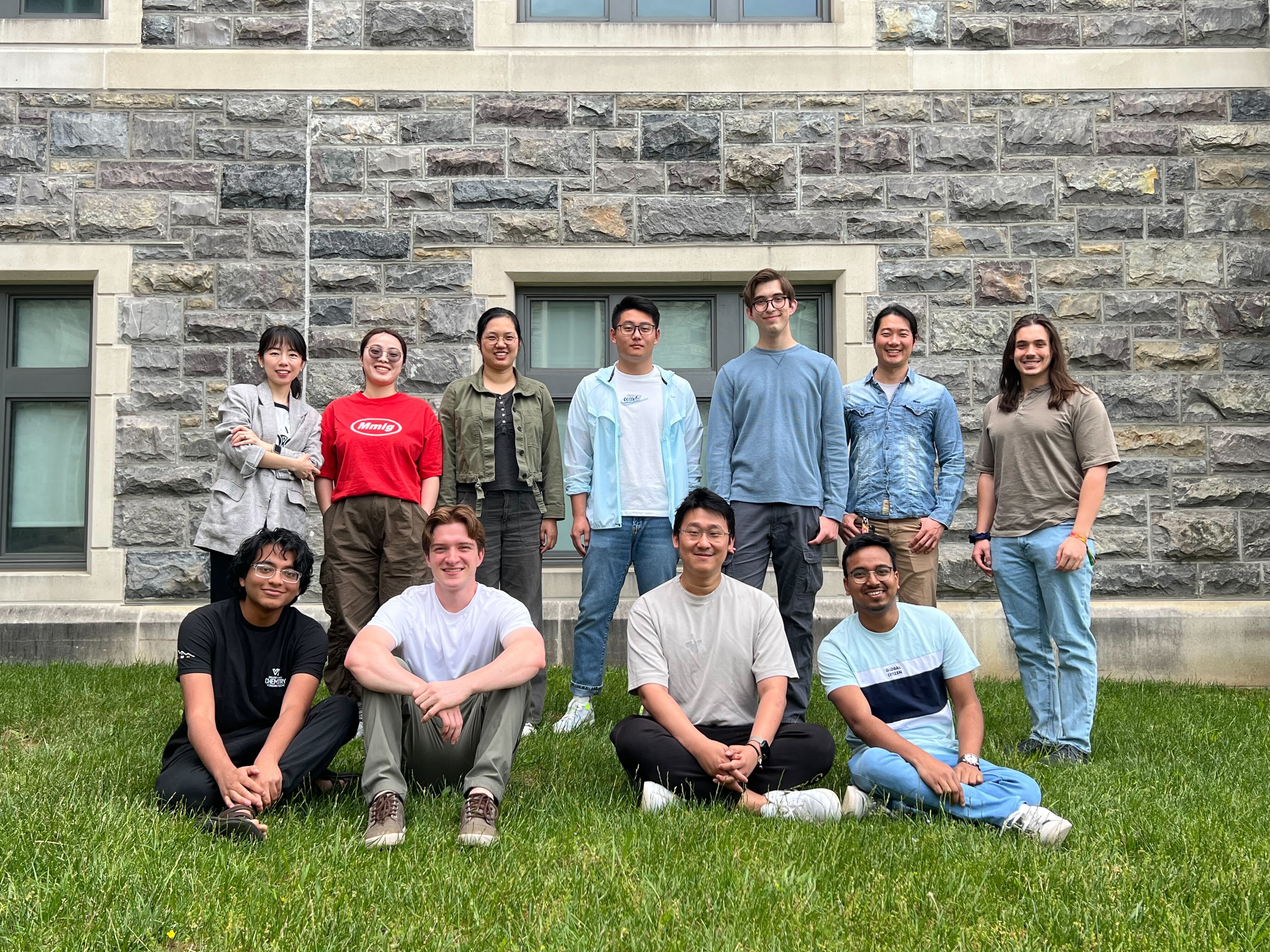Faculty Members
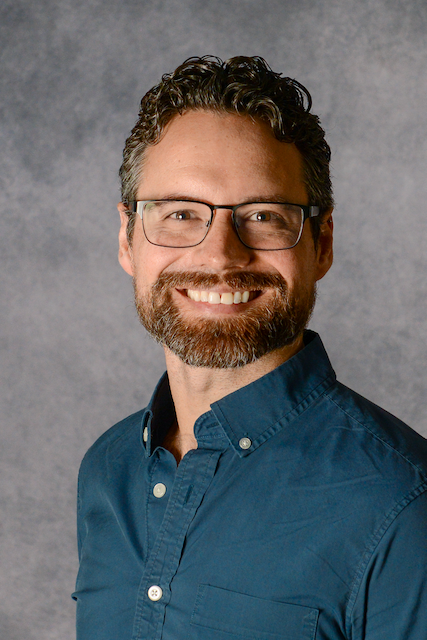
Netz Arroyo
Associate Professor
Caudill 322narroyo@unc.edu
Group Website
Research Interests
Bioaffinity Receptors, Biosensor Platforms, Therapeutic Monitoring in Vivio, Glucometer-based Immunoassays, Interfacial Electrochemistry
Research Synopsis
We utilize affinity receptors to ensure specificity in our measurements, selecting them through modified systematic evolution of ligands by exponential enrichment (SELEX) approaches—either developed within our group or in collaboration with partners. As an initial focus, we are building a library of DNA-based biosensors to enhance our ability to track pharmacological agents, their metabolites, and related biomarkers in vivo. However, our work extends beyond DNA; we are also exploring receptors with diverse natural and synthetic chemistries. A significant part of our efforts is dedicated to engineering receptors that enable efficient signal transduction to electronic interfaces.
Our ability to detect molecular targets in vivo relies heavily on the characteristics of implantable electronic devices. A key focus of our work is designing and fabricating electronic platforms that withstand prolonged exposure to biological fluids, remain minimally invasive, and enable high signal-to-noise measurements. Additionally, we dedicate significant effort to developing software for real-time control and processing of electrochemical measurements.
We leverage our biosensor platforms to study the transport of therapeutics, metabolites, and biomarkers in the body, aiming to enhance real-time health monitoring and deepen our understanding of how biomarkers reflect health status. Our platforms also have the potential to enable precise therapeutic dosing tailored to individual biochemical profiles, advancing the goal of truly personalized therapy. Additionally, we apply our technology to improve insights into pharmacology and metabolism in preclinical research models and to develop diagnostic tools for clinical applications.
The COVID-19 pandemic brought the world to a standstill, highlighting the urgent need for biosensor infrastructure capable of screening disease immunity at a population level—affordably and efficiently. Driven by this realization, we developed a fusion protein that enables the integration of over-the-counter glucometers with immunoassays. Given their widespread availability, FDA approval, and existing integration with telehealth infrastructure in many regions, glucometers serve as ideal detectors for diagnostic assays. We continue to advance and clinically validate our antibody sensing approach
We aim to develop rationally designed monolayers through self-assembly or controlled deposition, ensuring they withstand continuous potential modulation in biological fluids for extended periods (days to weeks). Our goal is to create chemically stable biosensing interfaces capable of supporting molecular monitoring over time scales relevant to human physiology and metabolism.
Professional Background
Netz Arroyo (Full Name: Netzahualcóyotl Arroyo Currás) is an Associate Professor of Chemistry. He earned his B.S. in Chemistry from Tec de Monterrey. He then pursued a Ph.D. in Analytical Chemistry at the University of Texas at Austin under the mentorship of Allen J. Bard, focusing on electrochemical energy storage and electrocatalysis using scanning electrochemical microscopy. For his postdoctoral research, he relocated to California to work with Kevin W. Plaxco at the University of California Santa Barbara, developing innovative electrochemical biosensing platforms designed for real-time monitoring of specific molecules in the body.
Research Group
The Netz research group develops biology-inspired electrochemical sensors that enable real-time, continuous measurement of a wide range of physiologically important molecules in vivo. Our interdisciplinary research integrates chemistry, engineering, biophysics, and pharmacology to tackle challenges like: (1) Understanding how nucleic acid- and other affinity-based receptors recognize small-molecule and protein targets, (2) Designing and fabricating implantable biosensors, (3) Creating metabolism-responsive drug delivery systems, and (4) Developing personalized diagnostic platforms for cutting-edge health care. We thrive in a collaborative environment that fosters creativity, inclusivity, and innovation, all to drive the future of personalized medicine and health monitoring.
News & Publications
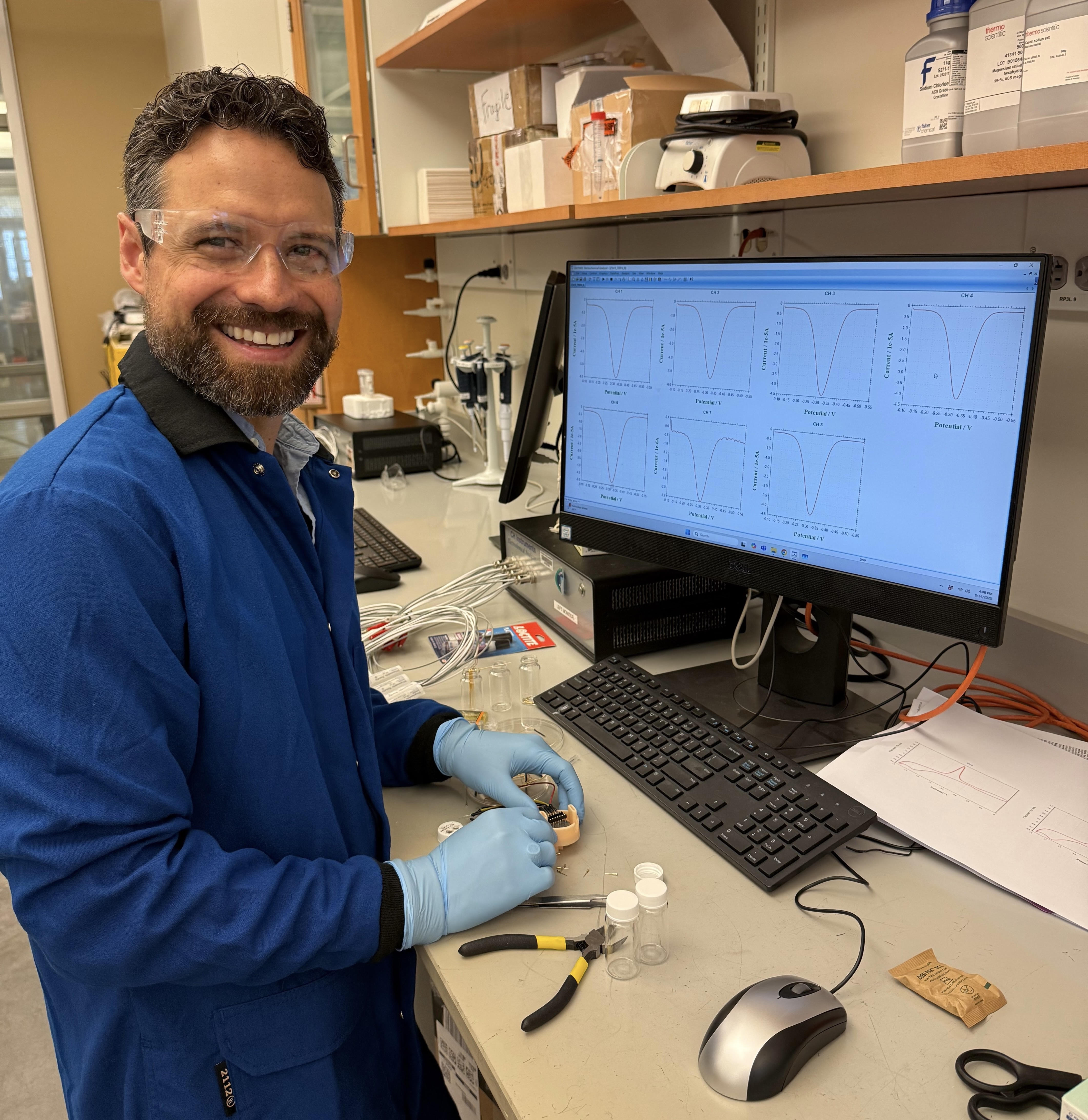
Netz Arroyo is an expert in creating electrochemical biosensors—tiny, highly sensitive devices that can continuously monitor molecules in the body.

The UNC Department of Chemistry is proud to welcome three outstanding new faculty members whose expertise and energy promise to enhance our vibrant scientific community: Dr. Netz Arroyo, Dr. Lina Quan, and Dr. Karen Scida.
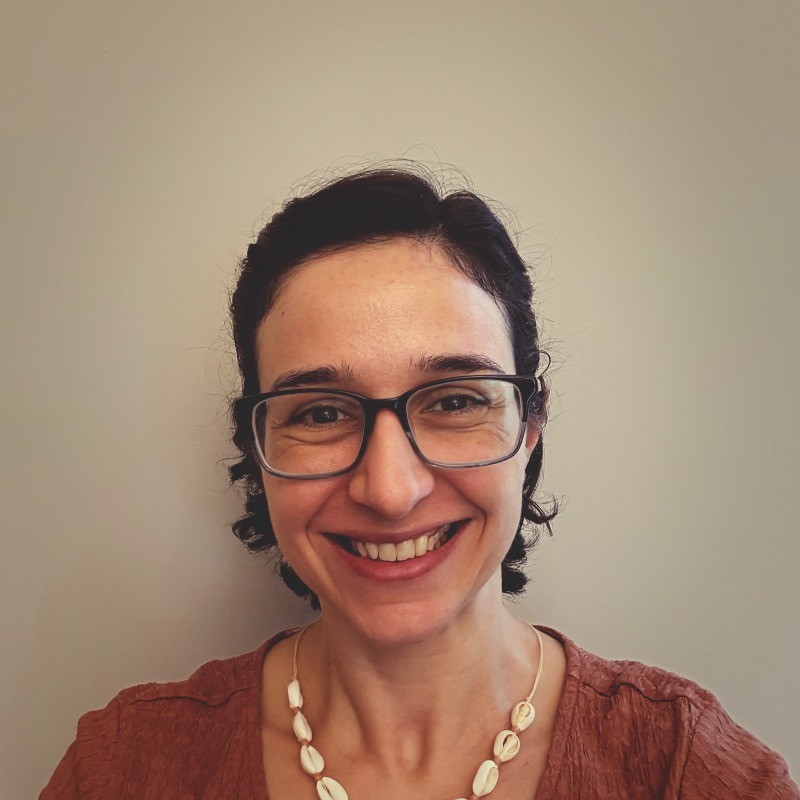
Karen Scida
Research Associate Professor
Caudill 317scida@unc.edu
Research Interests
microfluidics, point-of-care diagnostics, bioanalytical sensors, electrochemistry
Research Synopsis
At 3M, Scida worked for the Corporate Research Analytical Laboratory division, where she provided analytical and problem-solving support to all divisions of the company. There, she expanded her hands-on analytical technique skills in ion chromatography, organic functional group titrations, Karl-Fischer titrations, UV-Vis of solid and liquid samples, color analysis, quantitation of elemental C, N, H, and S in solid samples, among others. At Diagnostic Biochips, Inc., she began her journey in the neuroscience field. She took charge of a number of E-AB sensor development projects in addition to optimization of protocols for the use of silicon probes for deep brain stimulation and the thorough study of the field of real-time, neurochemical and neuropharmacological measurements in vivo. At the Lieber Institute, she applied her analytical skills to the development of in vitro and in vivo neurotransmitter-specific methods to evaluate the performance of the drugs created at the institute to understand and treat schizophrenia.
Professional Background
Scida received her B.S of Chemistry from the University of Texas at San Antonio. Her Ph.D. work focused on studies of microfluidics, point-of-care diagnostics, bioanalytical sensors, and electrochemistry at the University of Texas at Austin. During her postdoctoral research at University of California, Santa Barbara, she purposely expanded her analytical work to study bipolar electrochemical systems in nanoconfinement. She also collaborated with the pioneers of electrochemical, aptamer-based (E-AB) sensors on the development of new fabrication protocols for the enhancement of pharmacokinetic profile signals in live rats, achieving a precision orders of magnitude better than the gold standard LC-MS.
News & Publications

Netz Arroyo is an expert in creating electrochemical biosensors—tiny, highly sensitive devices that can continuously monitor molecules in the body.

The UNC Department of Chemistry is proud to welcome three outstanding new faculty members whose expertise and energy promise to enhance our vibrant scientific community: Dr. Netz Arroyo, Dr. Lina Quan, and Dr. Karen Scida.

Lina Quan
Assistant Professor
Caudill 318linaquan@unc.edu
Group Website
Research Interests
Novel Materials, Ultrafast Spectroscopy, Optoelectronic Devices
Research Synopsis
Our research focuses on the optical and electronic properties of emerging semiconductor such as perovskites, to control the absorption or emission of light and/or manipulate the transport and recombination of energized charge carriers in these materials. We employ a number of cutting edge characterization techniques (ultrafast lasers, synchrotron x-ray) to study the photophysics of materials and devices with high spatial and temporal resolutions. Our work finds a number of applications including light harvesting (photovoltaics, photo- and X-Ray- detectors) and light emission (LEDs, lasers) devices.
We develop and synthesize new semiconductor materials, and characterize them using a modern toolbox of materials chemistry: X-Ray and electron diffraction, solid-state NMR, electron microscopy and optical spectroscopies. A particularly unique aspect is the development of multimodal techniques to interrelate a series of different measurements to provide connections between the materials, chemical, physical, optical, morphological and structural properties – where possible on the same local scan area. Recent work has focused on pushing new nano-structured emitters further into the blue spectral region, and molecular modulation/passivation protocols for different bandgap bulk halide perovskites to increase their performance and long-term device stability.
A precise understanding of the physical principles governing the structural and electronic dynamics in electronic materials is necessary to generate insights that are subsequently fed to the development of next generation energy efficient devices. We investigate the interaction of light with matter, using light absorption or photoluminescence (PL) techniques to access key information about optoelectronic properties in materials and devices. To better inform synthetic efforts, and understand the critical roles of heterogeneity, interfaces, and disorder, we investigate the materials using various excitation sources such as ultrafast lasers. We perform a number of techniques including time-resolved photoluminescence and transient absorption across a range of time scales relevant to carrier recombination and device operation.
Professional Background
Lina Quan is an Assistant Professor of Chemistry. She received her Ph.D. in Chemistry from Ewha Womans University in Seoul, South Korea where she worked with Dong Ha Kim. During her Ph.D., she worked with Edward Sargent from the University of Toronto, (2014-2016). After receiving her doctorate in 2016, she continued work as a postdoctoral researcher at the University of Toronto then at the University of California, Berkeley with Peidong Yang.
Research Group
News & Publications

Netz Arroyo is an expert in creating electrochemical biosensors—tiny, highly sensitive devices that can continuously monitor molecules in the body.

The UNC Department of Chemistry is proud to welcome three outstanding new faculty members whose expertise and energy promise to enhance our vibrant scientific community: Dr. Netz Arroyo, Dr. Lina Quan, and Dr. Karen Scida.
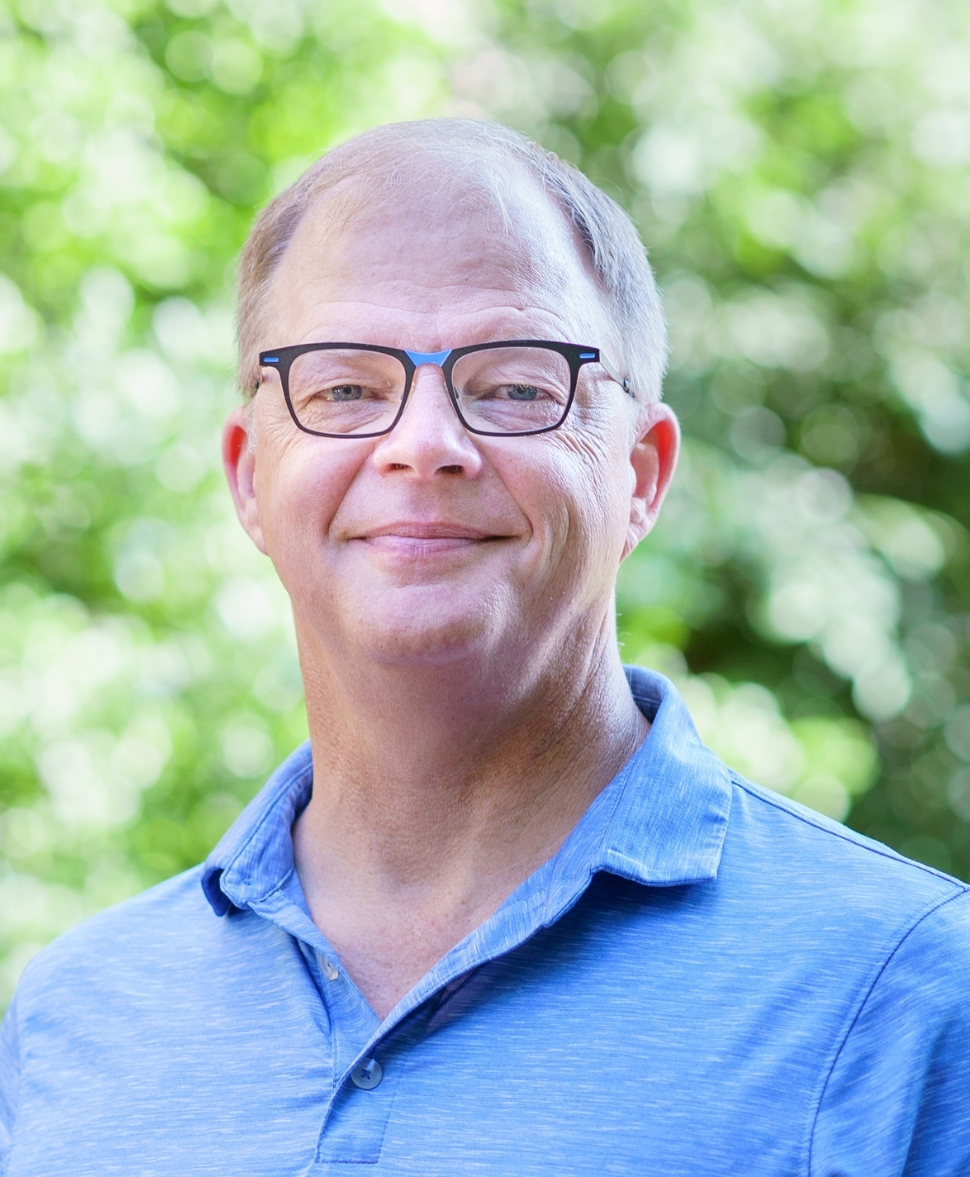
Marc ter Horst
Research Professor of the Nuclear Magnetic Resonance (NMR)
Caudill 056919-843-5802
terhorst@unc.edu
Group Website
Research Interests
Research Synopsis
Marc is the Nuclear Magnetic Resonance (NMR) Core Laboratory Director. Along with Staff in the NMR Core, he trains and teaches graduate students, post-docs, etc. in how to properly utilize NMR and EPR spectrometry in their research. Marc manages the core budget and instrument grant writing. He invites and encourages unique applications of NMR including heterogeneous samples, photoNMR and para-hydrogen.
Professional Background
News & Publications

Netz Arroyo is an expert in creating electrochemical biosensors—tiny, highly sensitive devices that can continuously monitor molecules in the body.

The UNC Department of Chemistry is proud to welcome three outstanding new faculty members whose expertise and energy promise to enhance our vibrant scientific community: Dr. Netz Arroyo, Dr. Lina Quan, and Dr. Karen Scida.
Liang Yan
Research Assistant Professor
Kenan C541919-843-9149
lyan1@live.unc.edu
Group Website
Research Interests
Research Synopsis
Dr. Liang Yan is the Research Assistant Professor within the You Lab.
Professional Background
News & Publications

Netz Arroyo is an expert in creating electrochemical biosensors—tiny, highly sensitive devices that can continuously monitor molecules in the body.

The UNC Department of Chemistry is proud to welcome three outstanding new faculty members whose expertise and energy promise to enhance our vibrant scientific community: Dr. Netz Arroyo, Dr. Lina Quan, and Dr. Karen Scida.
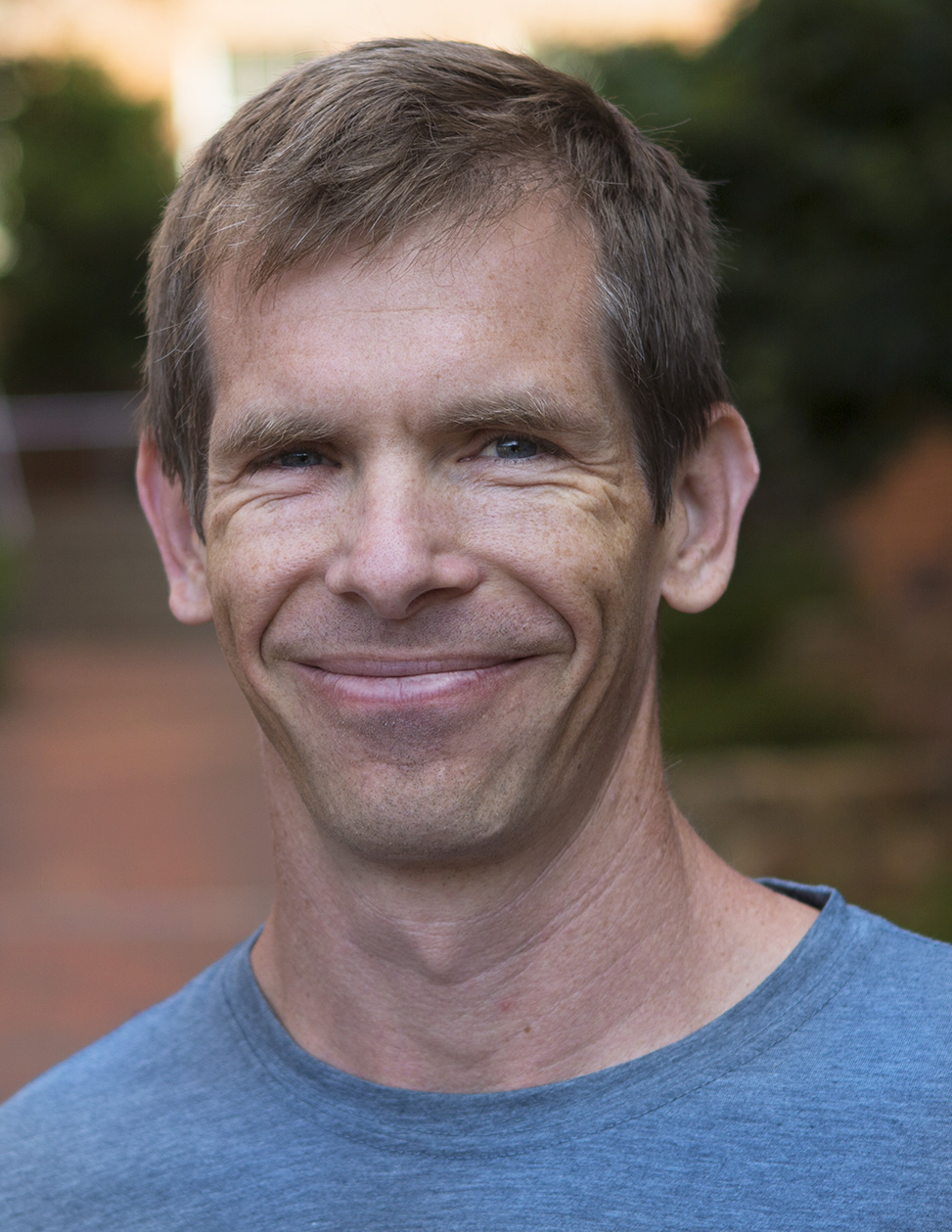
Bob Geil
Research Assistant Professor of CHANL Core
Chapman Hall 223919-843-6555
bob.geil@unc.edu
Group Website
Curriculum Vitae
Research Interests
Thin films, Biomedical Microdevices, MEMS
Research Synopsis
Professional Background
B.S. Chemical Engineering, North Carolina State University, 2000; PhD Chemical Engineering, Vanderbilt University, 2005; Postdoctoral Research Associate, Vanderbilt University 2005-2008
News & Publications

Netz Arroyo is an expert in creating electrochemical biosensors—tiny, highly sensitive devices that can continuously monitor molecules in the body.

The UNC Department of Chemistry is proud to welcome three outstanding new faculty members whose expertise and energy promise to enhance our vibrant scientific community: Dr. Netz Arroyo, Dr. Lina Quan, and Dr. Karen Scida.
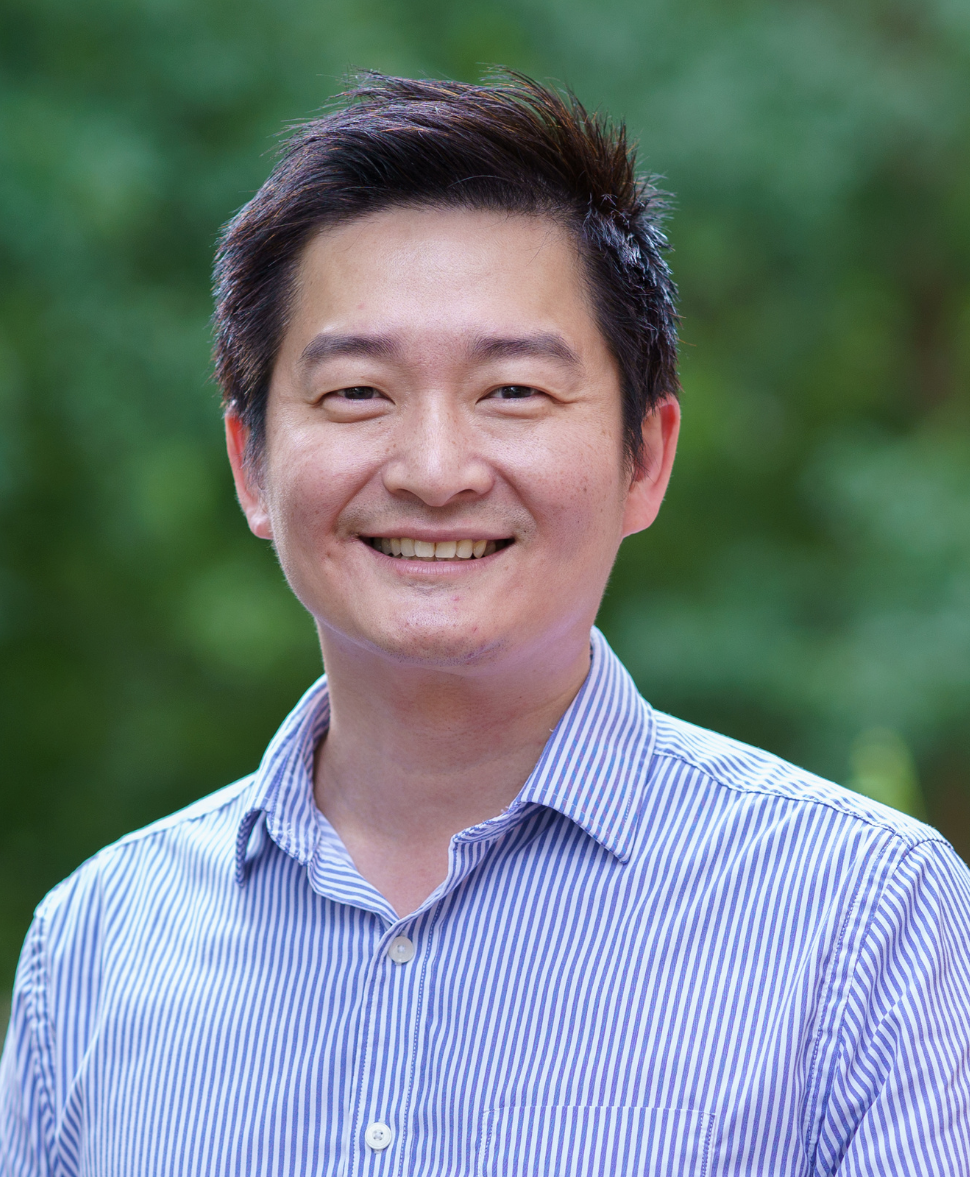
Josh Chen
Research Associate Professor of Xray Core
Caudill 053919-962-1689
joshchen@email.unc.edu
Group Website
Curriculum Vitae
Research Interests
Structure determination of new crystalline solids by single crystal X-ray diffraction, Advanced crystallography experiments using synchrotron radiation, Solid-state characterization via XRD, XRR, & WAXS, Design and implementation of custom diffraction experiments, Micro Electron Diffraction, Characterization of multi-phase topotactic solid-state reactions using X-ray crystallography, Development and characterization of potentially thermo- and photoreactive co-crystal systems
Research Synopsis
Josh manages the X-ray Core laboratory, which involves providing maintenance service to the laboratory instruments, determining X-ray structures for the collaborators, teaching X-ray course and training graduate students and postdocs, and writing grants to acquire new instruments and equipment for the lab.
Professional Background
B.S. Chemistry, University of Massachusetts Dartmouth
Ph.D. Physical Chemistry, Brandeis University
Postdoctoral Fellowship, Indiana University
News & Publications

Netz Arroyo is an expert in creating electrochemical biosensors—tiny, highly sensitive devices that can continuously monitor molecules in the body.

The UNC Department of Chemistry is proud to welcome three outstanding new faculty members whose expertise and energy promise to enhance our vibrant scientific community: Dr. Netz Arroyo, Dr. Lina Quan, and Dr. Karen Scida.
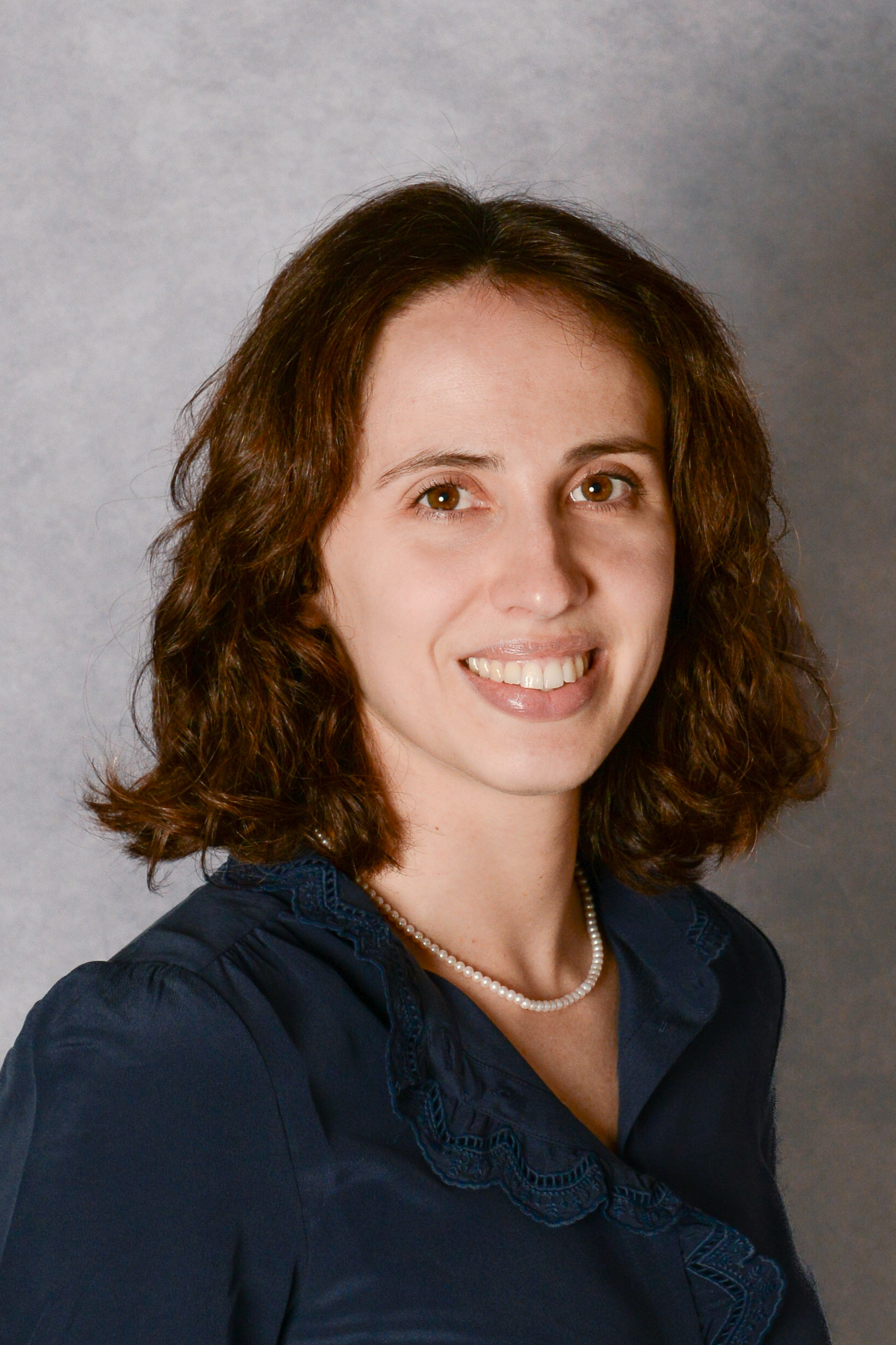
Elisa Pieri
Assistant Professor
Caudill Laboratories 118elipieri@unc.edu
Group Website
Curriculum Vitae
Research Interests
Computational/Theoretical Chemistry, Photochemistry, Protein Engineering
Research Synopsis
Our research develops and leverages the tools of computational and theoretical chemistry to advance the field of photoreaction discovery. We seek to understand and predict the events triggered by photon absorption in small molecules and proteins, and develop rational design principles to build bio-imaging and optogenetics agents. In particular, we focus on tuning the fluorescence and photochromic properties of molecules and proteins using hypothesis-free frameworks and high throughput methods, to scan tens of mutants and molecules without any a priori knowledge of their photochemistry. Members of the group will build a strong interdisciplinary STEM portfolio by living at the interface of chemistry, physics, biology and computer science.
Professional Background
Elisa Pieri is an Assistant Professor of Chemistry. She received B.Sc. (2012) and M.Sc. (2014) degrees from the University of Siena, Italy, and her Ph.D. (2018) in Computational Chemistry from the Aix-Marseille University, France. Before joining University of North Carolina at Chapel Hill in summer 2023, she was a postdoctoral fellow at Stanford University in the Martinez group (2019-2023).
News & Publications

Netz Arroyo is an expert in creating electrochemical biosensors—tiny, highly sensitive devices that can continuously monitor molecules in the body.

The UNC Department of Chemistry is proud to welcome three outstanding new faculty members whose expertise and energy promise to enhance our vibrant scientific community: Dr. Netz Arroyo, Dr. Lina Quan, and Dr. Karen Scida.

Huong Kratochvil
Assistant Professor
Genome Sciences Building 4358Huong.Kratochvil@unc.edu
Group Website
Research Interests
Protein biophysics, protein design, membrane proteins, biochemistry
Research Synopsis
In de novo protein design, we engineer artificial proteins from first principles to address complex mechanistic questions in biology: we can isolate key structural features from natural proteins and engineer them into de novo scaffolds to critically examine aspects of their function. The Kratochvil lab combines biophysical approaches with protein design strategies to 1) test mechanistic hypotheses of membrane protein assembly and function, and to 2) develop novel protein-protein interactions in engineering potent biologics. Through protein design, biochemistry, biophysics, and structural biology, we will be able to tackle key questions in ion channel/transporter structure and function: what forces govern how membrane proteins assemble? What are the critical structural features that encode for proton-selective transport? Water-selective transport? In the same vein, we are excited to apply de novo design approaches to address central questions of protein-protein interactions in immunology, offering a new biomolecular perspective to immunology and immunological processes, and serving as a foundation for the design and development of protein-based therapeutics.
Professional Background
News & Publications

Netz Arroyo is an expert in creating electrochemical biosensors—tiny, highly sensitive devices that can continuously monitor molecules in the body.

The UNC Department of Chemistry is proud to welcome three outstanding new faculty members whose expertise and energy promise to enhance our vibrant scientific community: Dr. Netz Arroyo, Dr. Lina Quan, and Dr. Karen Scida.
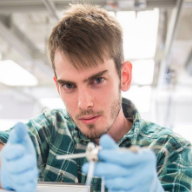
James Dodds
Research Assistant Professor
Caudill Laboratories 011jndodds@unc.edu
Research Interests
Quick solid phase extraction prior to IMS-MS analysis, perfluoroalkyl substances (PFAS) and their isomeric diversity
Research Synopsis
James is a research assistant professor in the Baker Lab and is currently developing analytical methods for quick solid phase extraction prior to IMS-MS analysis. Applications of these methods are currently focused on studying perfluoroalkyl substances (PFAS) and their isomeric diversity.
Professional Background
James completed his B.S. in chemistry in 2013 at the University of North Georgia where he was an undergraduate researcher under the advisement of Dr. Dan Thompson focusing on developing an interface between a thermogravimetric analyzer and a single quadrupole mass spectrometer. He then went on to further study mass spectrometry with a focus on characterizing ion mobility separations under the advisement of Dr. John McLean at Vanderbilt University, where he obtained his Ph.D. in chemistry in 2018.
News & Publications

Netz Arroyo is an expert in creating electrochemical biosensors—tiny, highly sensitive devices that can continuously monitor molecules in the body.

The UNC Department of Chemistry is proud to welcome three outstanding new faculty members whose expertise and energy promise to enhance our vibrant scientific community: Dr. Netz Arroyo, Dr. Lina Quan, and Dr. Karen Scida.


